
This article is part of theCh3: Life in a Research Laboratory"Part 7 of the series
Academics and Socialization
- ①Welcome to the New Student Training and Research Laboratory
- ②Classroom, Zoom, and Club Presentation
Leisure & Entertainment
Social Culture
- (6) BBQ under the Cherry Blossom Tree
- ⑦ Department of Architecture Basketball Tournament ← Current Location
- (8) Rituals of the New Year's Eve Party and Drinking Party
Highlights of this article
- The Complete Experience and Emotional Turn of the EIU Architecture Basketball Tournament
- Japanese Event Manager Culture: 90 Degree Bow to Apologize and Sense of Responsibility
- Practical Tips for Building Relationships with Small Acts of Kindness
- An in-depth analysis of Japanese kenpo culture: The rules and application of "Jankenpo"
- How to integrate into the Japanese social circle by serving others
- The Warm Story of an Unexpected Reunion: How Being Tender and Considerate Makes People Remember You
- How to break through the stereotype of "Japanese xenophobia" for international students
- Frequently Asked Questions (FAQ)
- Guided Reading and Reading Suggestions
- The complete experience of the basketball tournament of the Department of Architecture of the University of East Science and Technology (formerly known as the Eastern Polytechnic University).
- Guessing game at BBQ party
- Unexpected Reunion: A Warm Encounter with a Teaching Assistant
- Conclusion
- Frequently Asked Questions (FAQ) for Readers
- Related Resources
- Read Next
Guided Reading and Reading Suggestions
This post chronicles my experience playing in the Architecture Department's basketball tournament at Eastern Polytechnic University. From practicing hard for four months for the tournament, to receiving an email the night before the tournament saying "the tournament is canceled," from disappointment to participating in an unofficial tournament, from giving away popsicles to the officials and participants, to an unexpected reunion with the assistant coach at a BBQ party, this experience has given me a deep appreciation for the importance of basketball. It was an experience that made me realize Building Relationships Through Small Acts of Kindness The Power of. If you are planning to study or work in Japan, this article will help you:
- ✅ Understanding Japanese Event Culture(Basketball, BBQ, Guessing Game)
- ✅ Mastering Japanese Responsible Culture(The meaning behind the 90-degree bow of the person in charge to apologize)
- ✅ Learn to build relationships("Start serving others to be remembered.)
- ✅ Getting to know the culture of Japanese kenpo(Rules and Applications of Jankenpo.)
- ✅ Breaking the Cultural Barrier("How to get the Japanese interested in you, in Taiwan.)
- ✅ Experience the power of gentleness(# How to be remembered by the soft and gentle #)
We recommend that you read the Quick Checklist, then read the story, and finally refer to the FAQ for answers to frequently asked questions.
Quick Checklist (a must for integrating into Japanese social circles)
- 📋 Preparing for Japanese Activities
- Confirm the time, place and nature of the event
- Prepare suitable clothing (sportswear, casual wear)
- Understand the rules and procedures of the event
- Preparing for Self-Introduction (Japanese)
- Bring enough cash (participation fees, temporary expenses)
- Download event related APP (LINE, Google Maps)
- Confirm the mode and time of transportation
- Stay open and ready to meet new people.
- 📋 Relationship Building Skills Checklist
- Proactive service to others(Helping with the grill, pouring drinks, delivering stuff)
- Remember people's names.("Remember when you first meet me.)
- Showing a genuine smile(Smiling is the best social tool)
- Timely Praise(Praising someone's performance or efforts)
- Be sensitive to the needs of others("Observe what others need.)
- Don't sweat the small stuff.("Tolerance for emergencies.)
- Active Contact Exchange(LINE, Facebook)
- Keep in touch afterwards(Send a message to say thank you or hello)
- 📋 Japanese Guessing Game Verification
- Learn basic vocabulary: "グー" (stone), "チョキ" (scissors), "パー" (cloth).
- The opening words of the school: "The first time was Jankanpo".
- Learn to use the term "あいこでしょ" (あいこでしょ).
- Understanding the occasions when Guessing is used in Japan (deciding order, assigning tasks, entertaining games)
- Be prepared to participate with an attitude (serious but not overly nervous)
The complete experience of the basketball tournament of the Department of Architecture of the University of East Science and Technology (formerly known as the Eastern Polytechnic University).
Every year, the Architecture Department of the University of East Science and Technology (formerly known as the University of East Technology) has a sports-related tournament. In my exchange year, the competition was basketball. Here are the games of that yearCompetition Information::
- Organizer: College of Urban Environment (under the Department of Architecture)
- Participants: Teams from all research laboratories to participate in the competition
- Competition Venue: Aobadai Sports Center (originally scheduled)
- Competition Date: The weekend after the final
- Post-game Activities: BBQ Grand Meeting
💪 Phase 1: Practicing hard for 4 months
Not long after I entered the lab, I heard about a basketball tournament at the School of Urban Environment in four months. At that time, I had just started joining the basketball club, and no matter how far away the practices were, or how busy I was with exams and seminars, I still tried my best to report to the club every week. I was able to do my best in the competition and won the first championship for the Laboratory.I've been training for a long time, and I've been giving back to Sato Research Laboratory. The following is my training routine:
| Training Programs | frequency | Location | Time |
|---|---|---|---|
| Basketball Club Practice | 2 times per week | Eastern Polytechnic University Gymnasium | 19:00-21:00 |
| Personal Practice | 1-2 times per week | Suzukaedai Campus Basketball Court | 15:00-17:00 |
| Exercise with Laboratory Director | unscheduled | Suzukaedai Campus Basketball Court | 17:00- |
My Mood::
"Those four months were really tiring. During the day, I had to attend classes, do experiments, prepare for the final presentation, and practice soccer at night. But every time I thought of winning honor for the lab, it was all worth it. I wanted to do something for the lab because the seniors were so nice to me."
😢 Stage 2: Receive a "match suspension" email the night before the match
The day before the tournament, after the final presentation, I rushed back to the "Suzukake-dai" campus to do my final practice. I went back to the laboratory and cheered each other on with my seniors, and then went home to recuperate.
But before I went to bed, I received the following email and couldn't believe my eyes:
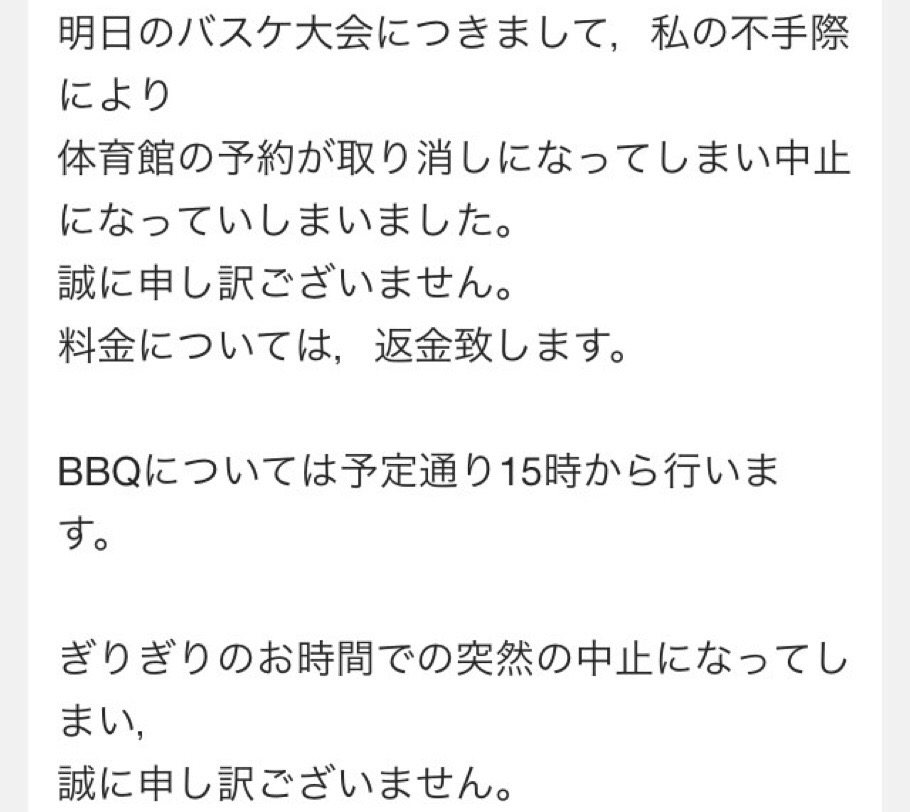
Email Content::
"Due to a mistake on my part, I canceled the reservation at the Aobadai Sports Center, so the tournament has been suspended and the money will be refunded to you later. As for the BBQ party, it will start at 15:00 as well."
It was a very sad moment. Four months of hard work, weekly practice, and anticipation for the competition were all in vain. I thought to myself:
- stunnedHow could you notify me the night before the game?
- lose hopeFour months of hard work for nothing?
- perplexity: Why did you make a mistake?
- nolens volensIt's what it is. I'll take it.
But since the situation has come to such a pass, I have to accept it.
My feelings::
"That night I lay in bed, tossing and turning, unable to sleep. I couldn't stop thinking about the four months of practice, the expectations of my seniors, and my dream of winning the championship for the lab. In the end, I could only tell myself, 'It's okay, at least I tried.
🏀 Stage 3: Informal Basketball Tournament
I woke up to a LINE message from Nakata:
"Informal tournaments will be held at the Suzukaedai Campus, so feel free to participate!
According to the appointment and instructions, I came to the field with great excitement, and there were eight contestants in total, from two at the beginning to a group of seniors from the Ookayama Campus Research Office.
The person in charge also came to the stadium and apologized to us by bowing 90 degrees over and over again:
"Sorry for the訳訳ありません。 Sorry for the訳ありません。..."
The cultural significance of the scene::
| Cultural elements | Description |
|---|---|
| Bow 90 degrees. | Japan's most formal and deepest form of apology, expressing extreme guilt and responsibility |
| Repeated apologies. | Repeat "申し訳ありません" over and over again to emphasize your mistake. |
| Culture of Responsibility | Japanese people feel extremely guilty about "confusion" (causing trouble for others). |
| Social Pressure | The person in charge may face peer criticism and social pressure. |
My Observations::
"This scene is similar to the scene in the Japanese drama "Hanzawa Naoki" where they keep apologizing to people by saluting them, and there is a feeling that the school life of the person in charge is "finished". I could feel the pressure and guilt in their hearts, and the guilt of 'causing trouble for everyone' almost crushed them."
Hot blooded game under the hot sun!
Despite the scorching sun's UV rays, the contestants were able to compete despite the heat.
On the field, nationality was no longer important, every player did their best to help their team score, and sweat made summer memories. All I could do was to make friends with the players, and I was glad that I was able to play with last year's champion team and mingle with them.
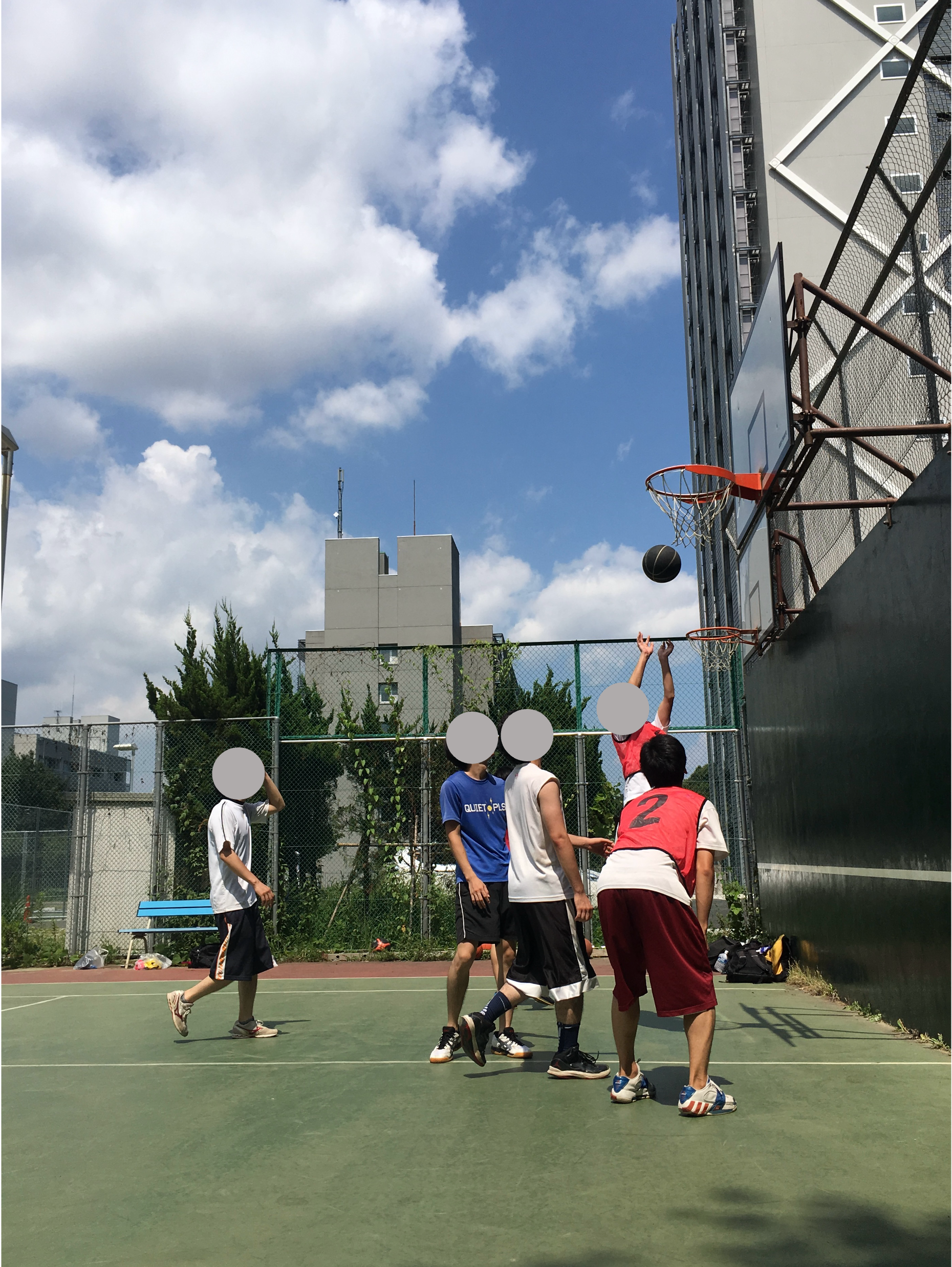
Conversation in the rest area
When I was resting in the rest area, I was suddenly approached by someone who wanted to chat with me:

(University Okayama Campus)
"Hey. What's your name? what's your name?"

"I'm Zero from Sato-ken. I'm Zero-kun from Sato-ken."

(University Okayama Campus)
"You're a good player. You had a good time today. Let's play together next time." (pats me on the shoulder)
My feelings::
"At that moment, I realized that I was in a completely different mood. Even though I didn't have the stage for the official game, I found something more precious on the field:Friendship, Respect, and the Joy of Being RecognizedIt's not important to win or lose a game. It doesn't matter if we win or lose, what matters is the memories we have of sweating and fighting together."
🍦 Stage 4: Buy popsicles for everyone to cool off!
I heard someone say they were craving ice, so I went to the school co-op and bought about 20 popsicles for the field participants to cool off. When they saw the popsicles and asked to pay, I just laughed:
"We had a great time today. Enjoy yourselves."
Also, I bought a few more for the event organizers. After all, I know the pressure of not pulling off an event, having been an event executive. When they saw me, they bowed and apologized, and when they saw me giving them popsicles despite my own feelings, they froze in their tracks, looking at each other, wondering if they were in a dream, and the look in one of their eyes as she was on the verge of tears was unforgettable.

"You've worked hard. Go for it!"

"Okay! Thank you very much indeed!"

"You're Satouken's Zero, aren't you?"

"Yes, I'd like to hear more about it."
That's how my name was memorized. Some people ate the ice lolly with a super grateful mood, bowed 90 degrees to me and thanked me. When I saw how happy they were, I was happy too, and I actually won the "one more" prize for the ice lolly that I had finished!
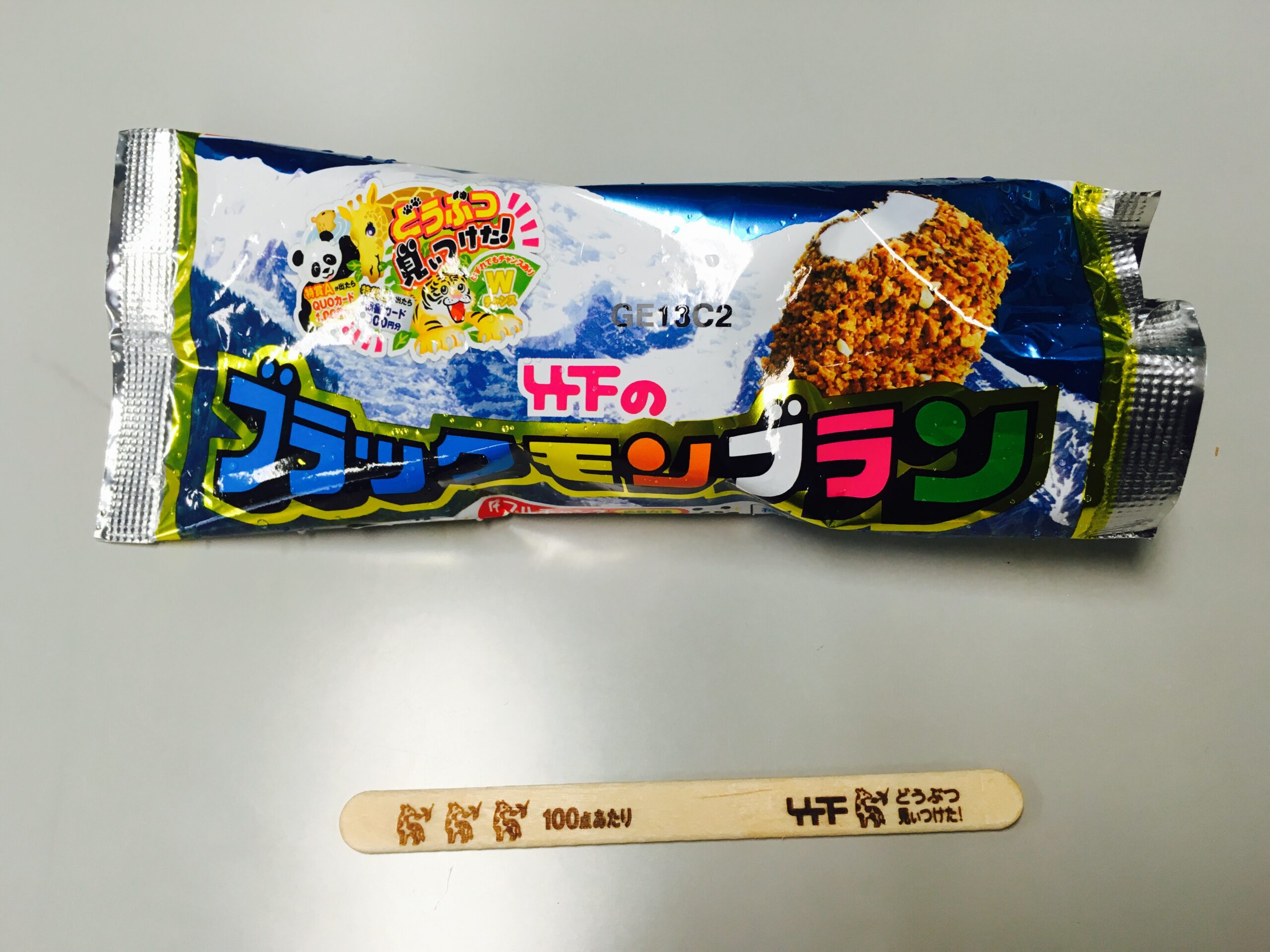
If you want to try it, you can buy it at the link below:
My feelings::
"At that moment, I realized. "The Joy of Giving"When I saw the person in charge go from guilt to gratitude, from stress to relief, I knew I had done something right. When I saw the person in charge go from guilt to gratitude, from stress to relaxation, I knew I had done the right thing. The "One More" popsicle is more like a "Good things come to those who do good." The Blessing."
🎯 Small acts of kindness make a big impact
I have learned a lot from this experience of buying popsicles:
| Learning | Description |
|---|---|
| Small Acts of Kindness, Big Impact | 20 A few popsicles cost less than 1,000 yen, but they made a dozen people remember me. |
| Consideration is more important than skill. | No matter how good you are, it's not as good as a thoughtful gesture that will be remembered. |
| Tolerance for embarrassment | Not taking into account the mistakes of the person in charge makes them more grateful. |
| Sincere Relationship Building | It's not for reward, it's to make people happy. |
Guessing game at BBQ party
After the game, it was time for the barbecue. While everyone was chatting and discussing the interesting events that took place at the stadium at noon, a female organizer came out. Since there was no contest, and it was a guessing game to determine who would take the rest of the money, the slightly drunk Japanese were naturally all over the place trying to win the 3,000 yen, making it one of the funniest scenes I've ever seen from a Japanese person.
✊✌️✋ In-depth analysis of Japanese guessing culture
Though it may seem like a small game, Rock-Paper-Scissors is often used as a means of making small decisions in everyday life in Japan. For example, scissors and rock-paper-scissors are often used to decide who is going to do something first, or when there is disagreement in a group. The following is a description of how to play Japanese Guessing.
Basic Glossary
| Gesture | Japanese (language) | literary (rather than colloquial) pronunciation of a Chinese character | Chinese |
|---|---|---|---|
| stone | GER | gū | clenched fist |
| scissor | Chukki | choki | Scissors (ratio V) |
| declare | palladium | pā | palms |
Guessing process and terminology
Opening Remarks
"The first time was Jankenpo!"
(Pronunciation: さいしょはグー, じゃんけんぽん)
(Chinese: initially stone, guessing!)
Description::
- "Initial Hagi": Everyone gets out of the stone first!
- "Jゃんけんぽん: Strike at the same time as ぽん.
When it's a tie
"Aiko Deshiroux!"
(Pronunciation: あいこでしょ)
(Chinese: tie and one more hand!)
Description::
- "Aiko": draw, tie-break
- "でしょ": means "to do it again".
- Similar to Taiwan's "Bu" again.
Rules of Guessing
Basically, the rules are the same as in Taiwan:
- Stone (グー) to win Scissors (チョキ)
- Scissors (chinki) to win cloth (paw)
- Cloth wins over stone.
BBQ Battle at the BBQ Ground
It's still funny to see college students playing rock-paper-scissors to the death. Everyone is so serious, it's like they're in a duel to the death. This attitude of "playing seriously" made the whole BBQ atmosphere super happy.

Unexpected Reunion: A Warm Encounter with a Teaching Assistant
Near the end of the BBQ, a tall girl walks up to the grill.

"Chicken?"

"May I? THANK YOU." (handing over plate)

"Please!" (piles a mountain of meat in her bowl)

("You're Zero, aren't you? The CU student who sent me a letter last year?"

(snapping to attention): "Ah, it's you, how are you Assistant Professor!"
(Into Memory: A General Theory of Earthquake Disaster Reduction Half a Year Ago)
The General Theory of Earthquake Disaster Reduction of Half a Year Ago
Half a year ago, I took a distance learning course on "General Theory of Earthquake Disaster Reduction" jointly organized by CUHK (National Central University of Taiwan) and EIT. The following isProgram Features(I highly recommend taking this class!) :
- Professors from CUHK and TUT teach a class together.
- Use of video conferencing system for lessons
- Fluent English for classroom assistants
- Assignments and reports are in English
Since I was always asking questions about the program and paying for assignments, I exchanged letters with my TA in English for a while. At the end of the course, I sent my last letter and promised to see you again.
My letter.: "I have successfully applied for the exchange program at TUT! I look forward to seeing you at EUT!"
Letters of reply from teaching assistants"Okay, send me another letter when you get to EIT."
After coming to MUST...
But then, after the exchange, I was so tired from the initial settlement process that I completely forgot about my appointment to see her, and I haven't heard a word from her.
(pulls back to BBQ venue)

"Oh, my God, I can't believe I forgot to tell you I was here!"

(Smile) "I always remember that there was a Taiwanese, Mr. Zero, who wanted to come to TUT to study, but I asked other research labs and thought he would not come.

(embarrassed) "I'm so sorry, there was so much paperwork at the beginning that I forgot... but how did you recognize me?"

(Smiling) "Because someone just told me that there is a Taiwanese person, Zero-kun, who is kind and gentle, so I guessed it was you. Besides, the meat is delicious!"

"Thank you, I'm sorry! I'll give you some more Taiwanese real estate later." ("Bow slightly, I'm sorry.)

Dr. Thailand
"So you two know each other, let's have a drink together sometime!"

"Yes!" (feeling happy)
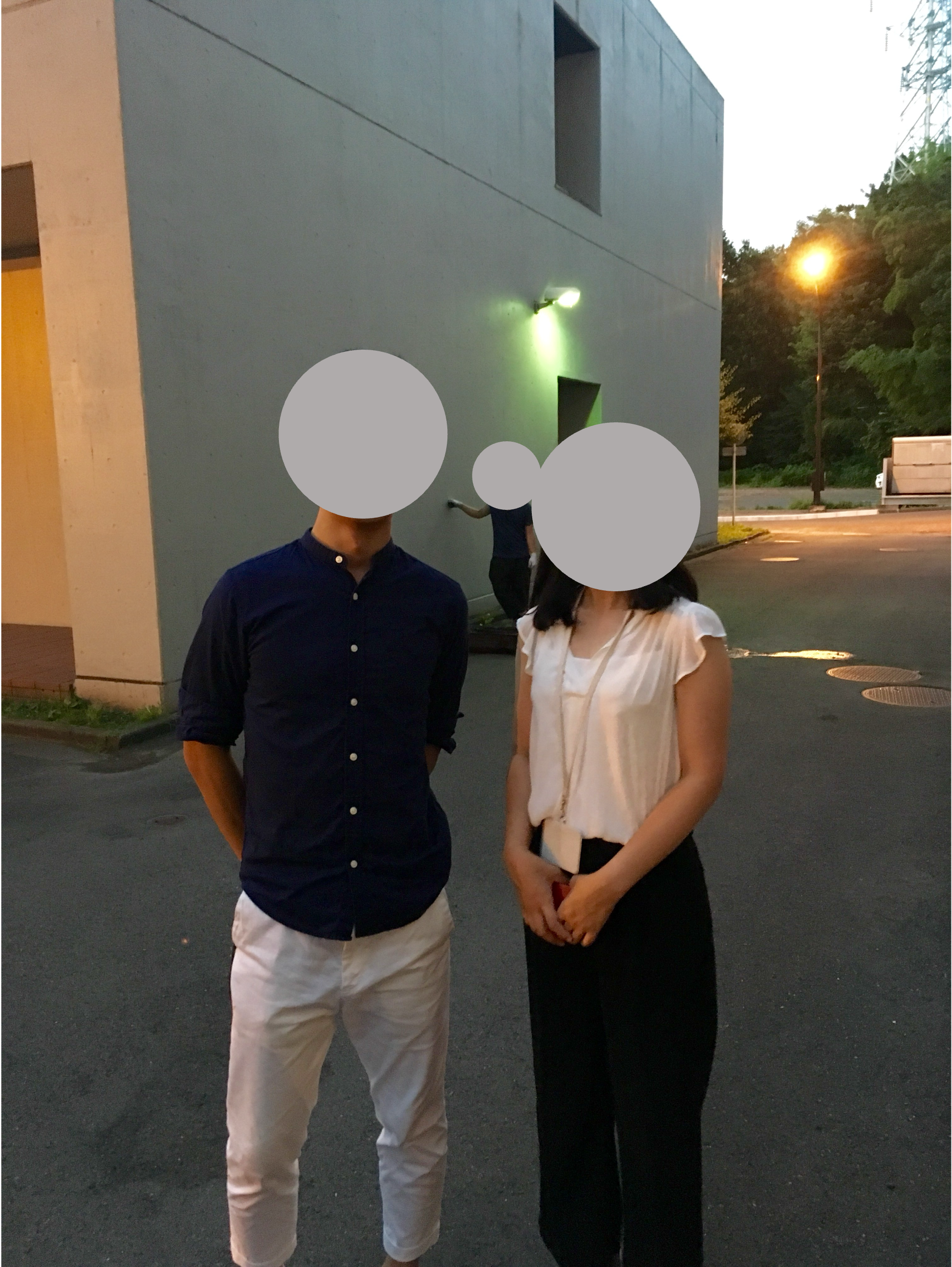
My Thoughts:
It turns out that being gentle and considerate can bring people back together again.
💡 Revelation of an Unexpected Reunion
| revelation | Description |
|---|---|
| Small acts of kindness are seen | The thoughtfulness of buying popsicles and barbecue makes people remember me. |
| The Power of Word of Mouth | "There's a Taiwanese guy, Zero, who's very sweet and gentle." That's what the teaching assistants said. |
| Sincerity Builds Connections | I don't mean to be mean, but I really want to help people. |
| Opportunity comes naturally. | You don't have to look for it, it'll come naturally. |
My feelings::
"At that moment, I realized. "Goodness will return to you." The truth. I didn't buy the popsicles for everyone to remember me by, but I really wanted to make everyone happy. I didn't expect that this small act would lead to the assistant coach recognizing me and our unexpected reunion. This feeling is more precious than any award."
Conclusion
The Architecture Department's basketball tournament was one of the most unforgettable experiences of my study abroad life. From practicing hard for the game for four months, to receiving the "game suspended" email the night before the game, from disappointment to participating in the unofficial tournament, from giving away popsicles to the officials and participants, to the unexpected reunion with the assistant coach at the BBQ party, each of these moments has given me a deep understanding of what it means to be an architect. Building Relationships Through Small Acts of Kindness The power of.
I learned from this experience:
- ✅ Don't count the gains and losses: Disappointed that the race was canceled, but earned respect by not complaining.
- ✅ Small acts of kindness make a big impactI bought a popsicle for less than 1,000 yen, and a dozen people remembered me.
- ✅ Consideration is more important than skill.: A good shot is not as memorable as a thoughtful gesture.
- ✅ Tolerance for embarrassmentThe fact that we don't take into account the mistakes of those in charge makes them even more appreciative.
- ✅ Goodness will come back to you.The assistant coach recognized me because of my tenderness, which led to an unexpected reunion.
If you are going to study in Japan, I highly recommend it:
Start by serving others so that they will remember you!
Many international students may think that Japanese people are xenophobic and difficult to get along with, but maybe I was lucky to have met a gentle older sister who made me willing to give my best to everyone, and I was able to communicate with Japanese people frequently.
But I still encourage you to try to get to know the Japanese people. We may not be able to get a word in edgewise at the beginning of the reception, but we can learn from the It's a small gesture to serve others. I started to get people to notice us, and I've been doing that ever since. Help with the barbecue Such an insignificant thing started to make people remember me, become interested in me and even in Taiwan, and then started to have conversations and gradually became friends.
Once the coldness of the first meeting is resolved, the Japanese will tell you everything.
Frequently Asked Questions (FAQ) for Readers
- QHow to make people remember you in Japanese social occasions?
- A
Here are practical tips:
- Start by serving others
Actions Description effect Help with the barbecue Volunteer to stand by the grill and grill meat for the group It makes people feel that you're considerate and enthusiastic. Pouring drinks Offer to help others to pour drinks and carry cutlery. Demonstrates care and concern Buy something for everyone. Buy small gifts such as popsicles, snacks, etc. Warmth and surprise Help clean up. Offer to help clean up after the event Demonstrate a sense of responsibility and teamwork - Show your sincerity and smile
- smiles: A genuine smile is the best socialization tool!
- eye contact: Maintaining eye contact when talking to people
- Greetings: Say hello to people when you see them.
- Remember people's names.
- Memorize the name of the person you meet for the first time.
- Call each other by name the next time you see each other.
- It makes the other side feel valued.
- QHow to break through the stereotype of "Japanese xenophobia"?
- A
Here are my suggestions:
- Understanding Japanese introversion
rationale Description Cultural Differences Japanese people are introverted and shy, and don't often initiate conversations with strangers. Language Barrier Worried about not being able to speak English well enough to speak to foreigners. Bon-Yin and Chien-Chien Chien In formal occasions, they will say "Kenzen" (superficial words), but they will say "Honin" (sincere words) only when they need time to build up their trust. - Take the initiative.
- Don't wait for the Japanese to come looking for you.: Initiate greetings and conversations.
- Start with the little things.Help with baking, pouring drinks, and shopping for everyone.
- Demonstrate SincerityI really want to get to know them, not for profit.
- Learn Japanese
- Japanese is the bridge of the heart: Even if your Japanese is not good, you should try to communicate in Japanese.
- English for professionalism, Japanese for friendship: English for professional discussions, Japanese for daily chats
- QHow to learn Japanese Guessing?
- A
Below is the full instruction:
- Basic Glossary
- GER(gū): stone (fist)
- Chukki(choki): scissors (than v)
- palladium(pā): cloth (palm of hand)
- Procedure of Guessing Fist
- Opening Remarks"At first, it was Jankenpo!"
- throw a punch: Strike at the same time as ぽん.
- judgmentRock beats scissors, scissors beats cloth, cloth beats rock.
- tie"Aiko Deshiro!" ("One more time.)
- Basic Glossary
Related Resources
- JANKAN YOURS and 16 SELECTIONS [YOURS and NERAI'S EXPLANATIONS
- English de janken! English Performance and Slang in Ger, Chinky, and Pale
Read Next
Let's go, let's read the next one!
Want a little refresher on the last one?
Or go back to the EP1 catalog for a different story?

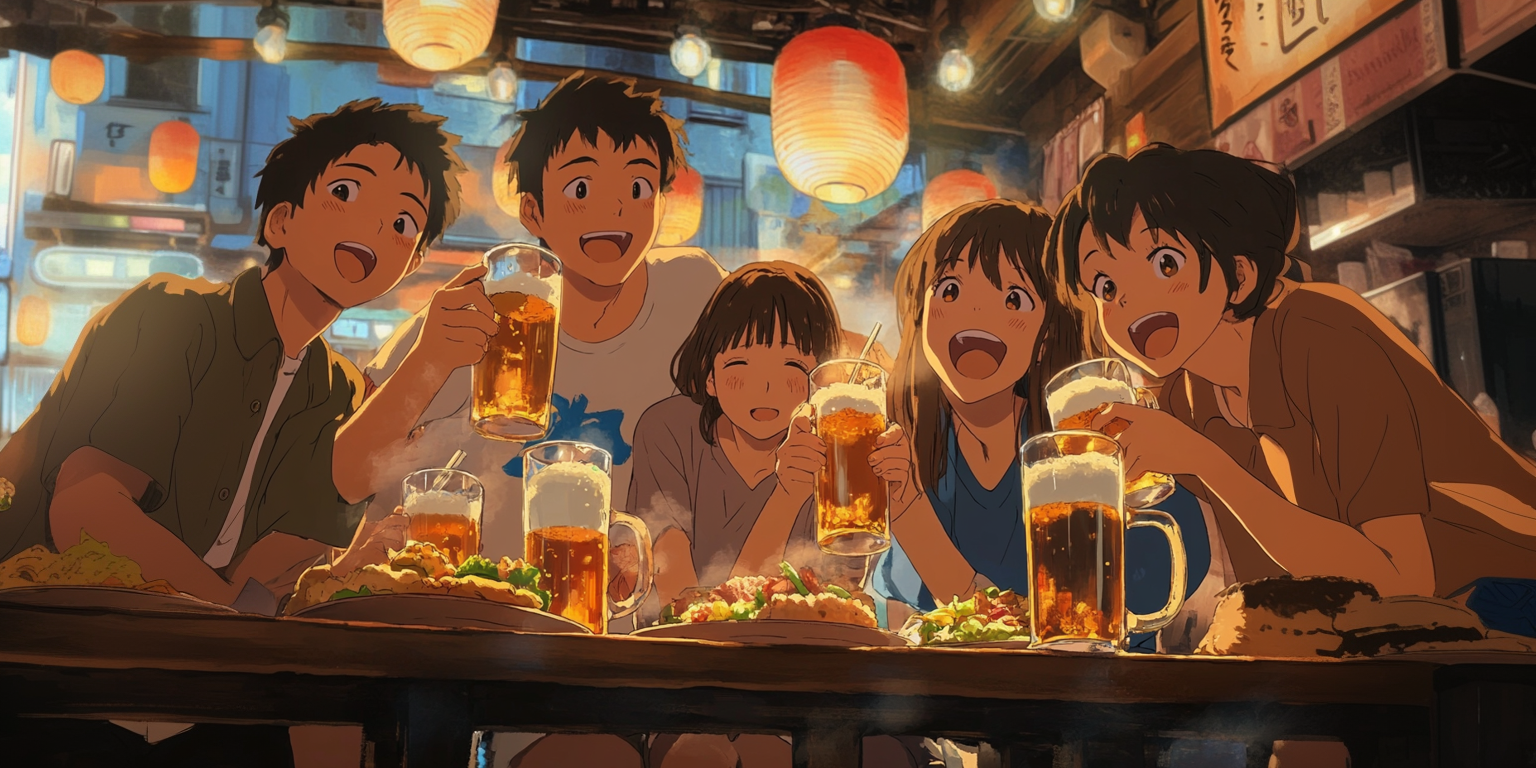
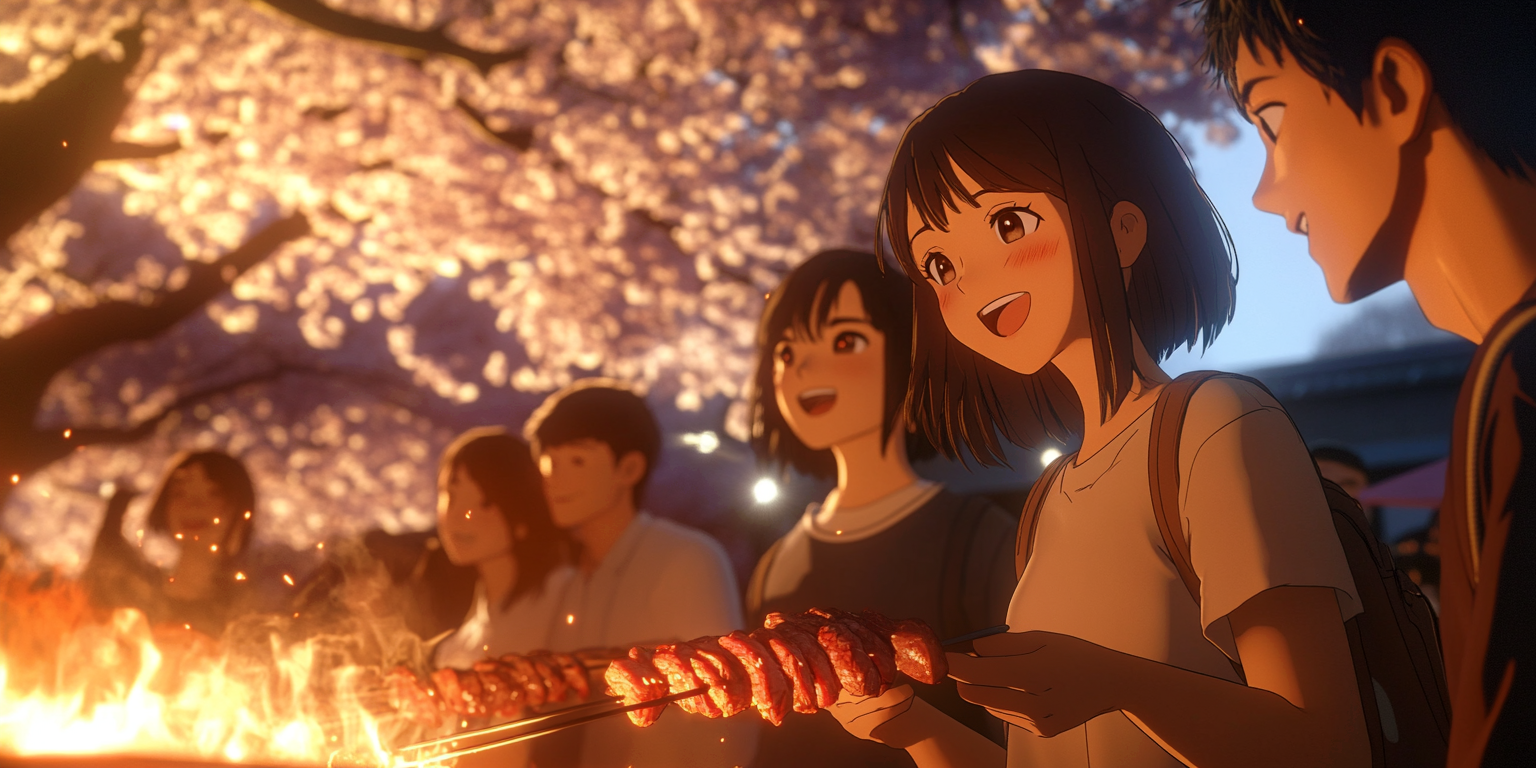

Message Center Feedback